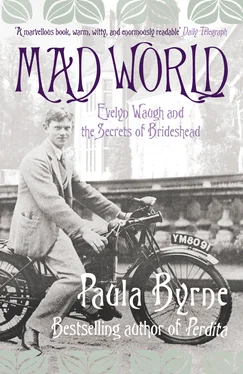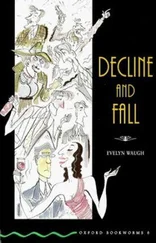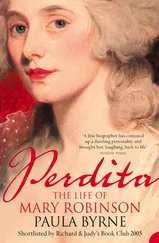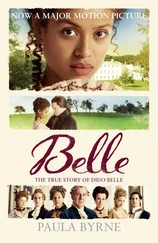Fothergill wanted to make the Spreadeagle ‘an Eton or Stowe of public houses’. He had a reputation for being an incorrigible snob who bullied his working-class clientele while being ‘all over’ the aristocrats. But in fact it was appearance, intelligence and style that mattered more to him. His motto was ‘not only to have proper and properly cooked food but to have only either intelligent, beautiful or well-bred people to eat it’. The inn was furnished like a home rather than a hotel, filled with Georgian and early Victorian furniture and fine china. As a gentleman innkeeper, he was exactly the sort of man Evelyn admired: rude to those he despised, determined to maintain the standards of a better age. On the publication of his first novel, Decline and Fall , Waugh sent a copy personally inscribed to ‘John Fothergill, Oxford’s only civilising influence’. Fothergill chained it up in the loo and said that it was ‘the best comedy in the English language’.
In 1924, Elmley held a twenty-first birthday party at the Spreadeagle for sixty young men, including all members of the Hypocrites’ Club. It doubled as a wake for the demise of the club, which had been closed down by the proctors after complaints by the neighbours about riotous behaviour and noise. They went down from Oxford in a fleet of hearses. Elmley, dressed in a purple velvet suit, provided the champagne. Harold Acton made a speech about the beauties of the male body; Evelyn got silently drunk; Robert Byron (wearing lace) passed out and the evening ended in dancing, persimmons thrown against the wall, and couples (all male) having sex in the hearse. In his memoirs, Fothergill noted the impressive amount of champagne that was consumed. Among his abiding memories were Terence Greenidge looking ‘quite mad’ and after-dinner dancing that reminded him of ‘wild goats and animals leaping in the air’.
Evelyn enjoyed heavy drinking because it made him uninhibited. He later acknowledged to his first biographer, Christopher Sykes, that he experienced an acute homosexual phase at Oxford. For the short time it lasted, his homosexual activity ‘was unrestrained, emotionally and physically’. This was not at all unusual for male students at Oxford. There were few women at the university (undergraduettes were kept in purdah with the exception of eight weeks) and other heterosexual relationships were frowned upon because they usually meant consorting with the undesirables of the town. Some of Evelyn’s friends went up to London for sexual experiences, coming back on the last train, which was known as the ‘fornicator’. But in the main, homosexual encounters were more common.
Homosexuality was considered by many to be a passing phase, which young men would grow out of once they had left Oxford and begun to meet young women. In those days it was chic to be ‘queer’ in the same way that it was chic to have a taste for atonal music and Cubist painting. Even old Arthur Waugh acknowledged as much: ‘Alec called on me the other day with a new friend of his, a sodomite, but Alec tells me it is the coming thing.’
‘Everyone in Oxford was homosexual at that time,’ said John Betjeman, who was there. Though homosexuality was illegal, many senior members of the university, most notably the flamboyant don Maurice Bowra, actively encouraged it, sometimes acting as go-between in setting up assignations for their pupils. Tom Driberg enjoyed soixante-neuf with a young don in the rooms where more cerebral tutorials were supposed to take place. The Hypocrites’ Club was the epicentre of what would now be called the university’s gay scene. According to Sykes, who knew Waugh extremely well, Evelyn was never shocked by homosexuality and remained very interested in the subject. He was, after all, ‘interested in all things which shed light on human character’. But later in life he would worry about his son discovering his past indiscretions.
In the spring of 1924, Evelyn informed his old school friend, Dudley Carew, that his life had become ‘quite incredibly depraved morally’. Drunkenness at the Hypocrites was part of the story, but hardly sufficient to qualify as incredible depravity. Something else was being hinted at. Tom Driberg, dancing with a fellow member, saw a drunken Evelyn rolling on the sofa with another boy, ‘with (as one of them later said) their tongues licking each others’ tonsils’. Anthony Powell’s first encounter with Evelyn was a sighting of him at the Hypocrites sitting on the knee of another member, Christopher Hollis. A club guest, Isaiah Berlin, also saw him on a settee kissing a friend. Evelyn later teased Christopher Sykes for not having had a homosexual phase, saying that he had missed out on something special.
But it was not just sexual experimentation. There were genuine love affairs. When the staunchly heterosexual Henry Yorke read Brideshead Revisited , he told Evelyn that it made him regret not falling in love at Oxford himself: ‘I see now what I have missed.’ What he missed was what Waugh experienced: real passion. Evelyn’s sexual abstinence at school seemed to make his Oxford love affairs even more intense.
Though Evelyn relished the companionship of eccentric and slightly crazed friends like Terence Greenidge and Harold Acton, romantically he was drawn to fragile, beautiful boys. Before being seduced by the Hypocrites, he had become intimate with a shy and scholarly left-wing Wykehamist from Balliol called Richard Pares. Evelyn described him as ‘abnormally clever’. In a later letter to Nancy Mitford, he also described Pares as ‘my first homosexual love’.
Pares was pale skinned, with a mop of fair hair and large blue eyes that somehow seemed blank. Their affair began in the summer of 1922. Evelyn later recalled: ‘I loved him dearly, but an excess of wine nauseated him and this made an insurmountable barrier between us. When I felt most intimate, he felt queasy.’ In other words, Waugh needed to be very drunk to release his strongest emotions, whereas Pares could not hold his drink. Nevertheless the young men spent two intense terms together. They only drifted apart when Waugh developed his ‘indiscriminate bonhomie’ among the Hypocrites. Being drunk was becoming his greatest ‘aesthetic pleasure’, whereas Pares was more interested in his research on the West Indian sugar trade. He was duly rescued from Bohemia by a homosexual don called Urquhart (known as ‘Sligger’), Dean of Balliol, who encouraged him to become an academic. He took a first and was elected to a fellowship of All Souls. Evelyn always remembered him with great affection and late in life Pares, happily married and respectable, remembered the affair as one of the most passionate and intense of his life.
Christopher Hollis, on whose knee Anthony Powell had first spotted Evelyn at the Hypocrites, wrote a memoir of Oxford in the Twenties , in which he said that Waugh had two homosexual lovers, first Richard Pares and then Alastair Graham. In A Little Learning , Waugh records that Richard Pares’ successor as what he called ‘the friend of my heart’ was a boy that ‘I will call Hamish Lennox’. ‘Hamish’ is described as ‘no scholar’: he ‘soon went down to take a course in architecture in London; but he continued to haunt Oxford and for two or three years we were inseparable or, if separated, in almost daily communication, until like so many of my generation, he heard the call of the Levant and went to live abroad’. ‘Hamish,’ says Waugh, ‘had no repugnance to the bottle and we drank deep together. At times he was as gay as any Hypocrite, but there were always hints of the spirit that in later years has made him a recluse.’ This account precisely fits Alastair Graham and Waugh’s relationship with him.
The two boys drank deep together of both alcohol and love. In one of his letters Alastair enclosed a naked photo of himself, leaning against a rock face, with arms outstretched, buttocks in full view, along with a description of the best way to drink fine wine: ‘You must take a peach and peel it, and put it in a finger bowl, and pour the Burgundy over it. The flavour is exquisite.’ The letter ended: ‘With love from Alastair, and his poor dead heart.’
Читать дальше












